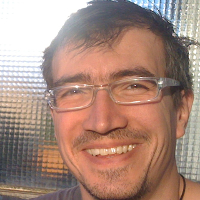
Prof. Ulf Brefeld, Leuphana University Lüneburg, Germany
Speech Title: Machine learning in Football (Soccer)
Prof. Ulf Brefeld, a professor for Machine Learning at Leuphana Universität Lüneburg. Prior to joining Leuphana, I was joint professor for Knowledge Mining & Assessment at TU Darmstadt and at the Leibniz Institute for Research and Information in Education (DIPF), Frankfurt am Main. Before, I led the Recommender Systems group at Zalando SE and worked on machine learning at Universität Bonn, Yahoo! Research Barcelona, Technische Universität Berlin, Max Planck Institute for Computer Science in Saarbrücken, and at Humboldt-Universität zu Berlin. I received a Diploma in Computer Science in 2003 from Technische Universität Berlin and a Ph.D. (Dr. rer. nat.) in 2008 from Humboldt-Universität zu Berlin.

